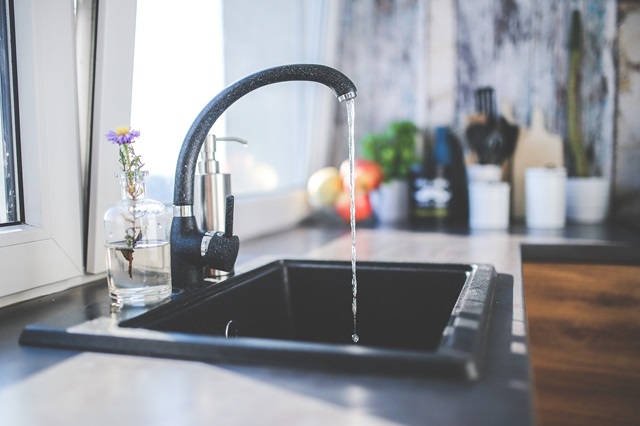Table of Contents
In today’s eco-conscious world, water conservation in commercial kitchens is not just a trend, but a necessity.
Find the best practices to lower water consumption, reduce costs, and improve sustainability in your kitchen operations.
From switching water providers to implementing cutting-edge technologies, this article guides you through effective strategies that make a difference.
1. Compare and Switch Water Providers
Commercial kitchens that switch water providers can save significant costs and improve service quality. The first step is to assess different providers according to costs, services, and customer reviews. You can save costs on reduced water bills and improved service quality, which is important for efficient kitchen operations.
Choose providers focusing on sustainability to benefit the environment and improve your business’s green credentials. Try to get an online business water quote from different providers. Make sure to compare these quotes and services, also considering hidden fees and long-term contracts. Use online tools and reviews to simplify the comparison process and ensure you choose a provider that aligns with your operational needs and sustainability goals.
2. Conduct a Water Audit
For commercial kitchens to identify conservation opportunities, they must understand their current water consumption. Start with a thorough water audit to locate possible inefficiencies.
Steps for a water audit:
- Measure current usage to track all water sources, such as taps, dishwashers, and ice machines.
- Pinpoint high consumption areas specifically focusing on operations like food preparation and dishwashing.
- Analyse waste by looking for leaks, inefficient practices, and excessive use.
Think about hiring professional water auditors to get accurate evaluations and personalised recommendations. This can guarantee precise data and effective conservation strategies that produce substantial savings and sustainability improvements.

3. Install Water-Efficient Appliances
Install water-efficient smart appliances in your commercial kitchen to drastically lower water use. Consider installing Energy Star-rated dishwashers, pre-rinse spray valves, and efficient ice machines that use less water without sacrificing performance. These appliances reduce water consumption, lower energy bills, and decrease maintenance costs.
Over the long term, they provide significant cost savings and lower the environmental impact of your kitchen operations. Investing in these technologies lets your kitchen operate more sustainably in a way that aligns with eco-friendly water practices and reduces overhead costs. Think about adding fixtures to existing equipment or buying new water-efficient models to improve efficiency and sustainability in your commercial kitchen.
4. Implement Behavioural Changes
It’s important to train kitchen staff on water-saving technologies and methods. Provide education on efficient washing methods and the importance of water conservation. Create a culture of water conservation by promoting awareness and setting clear goals. Simple habits can substantially lower water consumption, such as turning off taps when not in use.
Implement a water monitoring system to keep track of consumption and reward staff for water-saving behaviours. Recognise and celebrate conservation achievements to motivate ongoing efforts. This approach reduces operational costs and promotes sustainability in your commercial kitchen.

5. Regular Maintenance and Leak Detection
Regular maintenance is vital for water efficiency in commercial kitchens. Water lines, faucets, and dishwashers often get leaks that waste a significant amount of water. There are ways to find and fix leaks quickly in a busy kitchen environment, such as routine inspections and pressure kits.
Preventative maintenance prevents expensive water loss and supports long-term water conservation efforts to ensure sustainable operations. Commercial kitchens must prioritise maintenance schedules to reduce water waste and improve efficiency effectively.
6. Optimise Water Use in Food Preparation
Commercial kitchens need to improve their water use during food preparation. It is necessary for sustainability and cost-efficiency.
Here are a few effective strategies:
- Use pre-rinse spray valves to reduce water flow without compromising the effectiveness of cleaning.
- Put fruits, vegetables, and other produce in bowls and wash them in batches instead of running them individually under the faucet.
- Use optimised defrosting techniques, like defrosting foods in the fridge instead of running them under running water.
- Soak pots and pans in hot water instead of scrubbing them under running water.
- Invest in water-efficient appliances like Energy Star-rated dishwashers.
These strategies help save water, lower operational costs, and support environmental sustainability.

7. Greywater Recycling Systems
Greywater recycling in commercial kitchens includes reusing wastewater from sinks and dishwashers for non-potable purposes like toilet flushing and irrigation. Some of the benefits are lower water use and reduced utility bills. For greywater systems to work in commercial kitchens, they must be tailored to fit specific needs. This is to ensure the systems are compatible with hygiene standards and existing plumbing.
UK regulations are very strict about health and safety in commercial kitchens. Therefore, greywater systems must comply with guidelines to ensure water quality and lower risks. Uphold standards and improve savings effectively with regular maintenance and certified systems.
8. Water-Saving Technologies
Commercial kitchens must install sensor-activated faucets and low-flow aerators. These devices efficiently lower water consumption. Installing these technologies lowers utility bills and supports sustainability goals by reducing water waste.
Initial water-saving technology investments are usually offset by long-term operational cost savings. The prospect of incentives may enhance financial benefits further. Future innovations include advanced water monitoring and AI-driven (Artificial Intelligence) solutions that guarantee enhanced water management and sustainability.

9. Employee Engagement and Training
Employee involvement is vital to conserve water in commercial kitchens. Including employees can drastically impact water-saving efforts through active participation and awareness. It’s important to have effective training programs that focus on practical techniques, like proper equipment use and reducing water waste during kitchen operations. These programs must emphasise the environmental and financial benefits of water conservation.
Create a water conservation policy that is tailored to your commercial kitchen and ensures consistency and accountability. The policy must outline clear guidelines, responsibilities, and goals for lowering water use. Use regular training updates and monitoring mechanisms to reinforce compliance and encourage ongoing improvement in water-saving practices.
10. Engaging Suppliers and Stakeholders
Commercial kitchens need to try to enhance sustainability by including suppliers and stakeholders in water conservation efforts. Collaborative strategies improve water use across the supply chain, highlighting the adoption of sustainable products and practices. Encouraging suppliers to become more water-efficient lowers their environmental impact and reduces operational costs for kitchens.
There are many benefits for businesses that create partnerships focused on conservation. They include compliance with regulatory standards and enhancing corporate social responsibility (CSR) credentials. Partnering with stakeholders ensures the implementation of water-saving technologies and strategies to reinforce long-term sustainability goals.

11. Monitoring and Reporting
Implement a regular water consumption monitoring system in your commercial kitchen. Tools like smart metres or software such as Aquicore or WaterSignal allow accurate tracking of water use. Regular reporting helps to identify trends and areas that need water conservation improvement.
Review data to set realistic goals, like lowering water consumption by improving equipment or training employees. Effective monitoring and reporting ensure compliance with water regulations and contribute to cost savings and environmental sustainability.
Conclusion
When your commercial kitchen embraces these best practices for water conservation it can achieve significant cost savings and sustainability goals. Implement these strategies to make a positive impact on both your business and the environment.
Author Profile
- Blogger and Educator by Passion | Senior Online Media & PR Strategist at ClickDo Ltd. | Contributor to many Education, Business & Lifestyle Blogs in the United Kingdom & Germany | Summer Course Student at the London School of Journalism and Course Instructor at the SeekaHost University.
Latest entries
 BusinessFebruary 1, 2026Why Modern Warehouse Management is the Secret to UK Retail Growth
BusinessFebruary 1, 2026Why Modern Warehouse Management is the Secret to UK Retail Growth BusinessDecember 2, 2025How to Build an Effective Progression Plan in Your Company
BusinessDecember 2, 2025How to Build an Effective Progression Plan in Your Company BusinessOctober 24, 2025Legionella Risk Assessment: 5 Things Every Entrepreneur Needs to Know
BusinessOctober 24, 2025Legionella Risk Assessment: 5 Things Every Entrepreneur Needs to Know EmploymentSeptember 2, 2025Why Motorbike Accident Staff Claims are a Growing Business Risk
EmploymentSeptember 2, 2025Why Motorbike Accident Staff Claims are a Growing Business Risk





